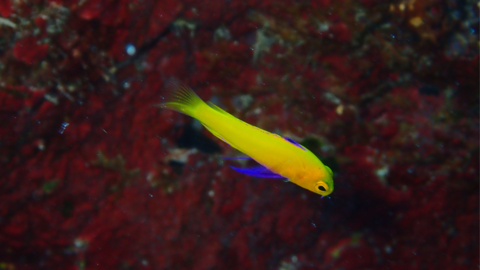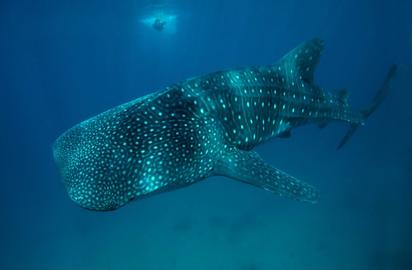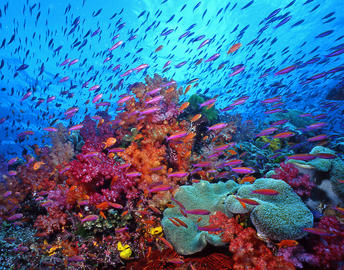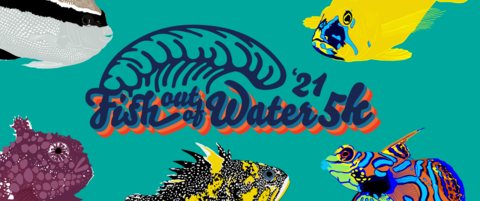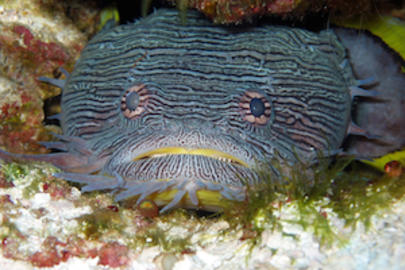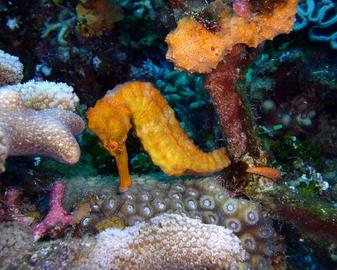REEF's Volunteer Fish Survey Project (fish surveys) and Invasive Species Program (invasive lionfish removals and derbies) are highlighted in this article about ways to participate in citizen science as a diver in the Florida Keys.
We are pleased to announce Rhoda Green as our 2020 REEF Volunteer of the Year. Rhoda lives in the Seattle area, and has been a REEF member since 2000. She is one of REEF's most active surveyors, having completed 1,210 surveys for the Volunteer Fish Survey Project.
Of those surveys, the majority have been done in the Pacific Northwest, mainly in Washington State. She has also done some surveys in Hawaii. Rhoda was also the first to conduct REEF surveys in the Seychelles, part of our Indian Ocean/Red Sea (IORS) region.
Known as one of the best-preserved marine areas in the Caribbean, Jardines de la Reina (Gardens of the Queen) is a marine park located on the southeastern portion of Cuba known for its high fish diversity and biomass. A variety of marine habitats including patch reefs, seagrass, and mangroves surround the islands, providing important nursery areas for many juvenile fish species. Large fish such as snapper, grouper and sharks are a frequent sighting for divers in this area, and the barrier reefs have a fantastic abundance of hard and soft coral and sponges.
The Philippines are home to vibrant coral reefs and incredible macro life. Dumaguete is known for its world class muck diving, and divers will love searching the unique sandy slopes for crytic species like the Robust Ghost Pipefish. Some sites also have artificial structures that attract plenty of juvenile fishes. A day trip to nearby Apo Island is included and provides the opportunity to see some of the most stunning coral reefs in the Pacific.
The Solomon Islands are one of the most intact and biologically rich oceanic archipelagos on Earth. In fact, the region was identified as a “Bright Spot” in a recent scientific study. The Solomon Islands were designated as a location where coral reefs are flourishing against the odds despite environmental pressure. On our last REEF Trip trip aboard the Bilikiki in 2017, REEF surveyors in the Solomon Islands documented 786 species over 10 days, and we will try to increase that number on this trip!
Fiji is known as a hotspot for diving, with massive schools of pelagics such as Bigeye Trevally, Scad, and Barracuda, Gray Reef and Whitetip Reef Sharks, and unusual creatures like the Leaf Scorpionfish and Ornate Ghost Pipefish. Fiji's Bligh Waters even have a dive site called Humann Nature, named for REEF Co-Founder Paul Humann! The luxurious NAI'A is world-renowned for her crew of experienced Fijian divers and sailors known for their friendliness and expertise.
You're invited to participate in the second annual Fish Out of Water Virtual 5K!
Registration is open until May 28, 2021.
Home to several of the most species-rich sites in REEF’s Tropical Western Atlantic database, Bonaire is legendary among underwater naturalists and REEF surveyors. This trip includes six boat dives as well as unlimited shore diving opportunities throughout Bonaire's marine park. A rental vehicle is included with each room so participants may access many different shore diving sites. Bonaire is an excellent place to expand your knowledge of Caribbean fish species alongside other marine life enthusiasts.
Cozumel is known for its many unique fish finds including the Cozumel-endemic Splendid Toadfish (pictured) as well as high concentrations of other interesting species like Cherubfish, Blackcap Basslets, and Sargassum Triggerfish. When not diving, you will enjoy all the wonderful food and culture that Mexico has to offer, as well as daily seminars by Cozumel local and fish ID expert Tracey Griffin. Reserve your spot today because this popular trip is sure to sell out quickly.
Located on a secluded key in Roatan, Honduras, CoCo View Resort is well known among divers for its excellent house reef. Guests will enjoy two daily boat trips and unlimited shore diving at CoCo View’s front yard reef, where more than 300 fish species have been recorded. Fish enthusiasts will be delighted to search for species like the Bearded Toadfish, found only in the Bay Islands. The resort is an excellent fit for non-diving companions as well, who may enjoy front yard snorkeling and access to ocean kayaks.


